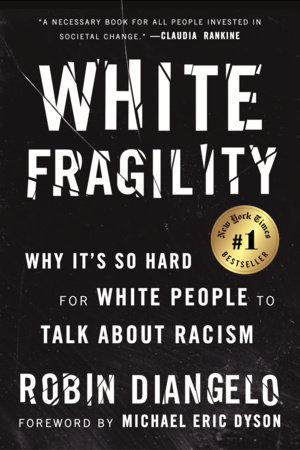The two books share many characteristics, says the good doctor (in his “Anthony Daniels” guise), and the most noteworthy is a shared hectoring tone:
DiAngelo’s book displays a curious admixture of influences: the Chinese Cultural Revolution, Jimmy Swaggart, Freudian psychoanalysis, and Uriah Heep, the four of them being present in approximately equal proportion.
DiAngelo has apparently made a career of anti-racist struggle sessions in which ordinary employees of various organizations must confess publicly to their racism however hidden it might be, as university professors, primary school teachers, doctors working in slums, etc., had once in China to confess to bourgeois propensities and counter-revolutionary ideas. They may never have uttered a racist sentiment, they may never have been rude to a person of another race, let alone violent towards one, they may have friends of other races or even be married to a person of another race, but they carry racism deep within them like Original Sin, with this difference: there can be no redemption from it even after having read DiAngelo’s book and attended her struggle sessions. Personally, I should not be at all surprised if the end result of all her efforts, at least among the men she has “trained” (which is to say tried to indoctrinate), was to have acted as a recruitment officer for the Ku Klux Klan.
After thirty years of constant work of supposedly anti-racist training, she confesses — like the tearful Jimmy Swaggart — to being still guilty of racism herself, promising to reform, although reform is ex hypothesi impossible because racism is in her society’s DNA, as it were. One is reminded of the type of psychoanalysis which after thirty years of hourly sessions four times a week fails to get to the root of the analysand’s problem, let alone solve it, because it doesn’t even know what the problem is. But failure is also an opportunity, because, like psychoanalysis, the more anti-racist training fails, the more it is needed. DiAngelo, all credit to her, has found an economic niche for herself for the rest of her life. One has a sneaking admiration for such entrepreneurs. They are the asset-strippers of the soul.
As for Uriah Heep, DiAngelo has obviously heard, read, marked, learned, and inwardly digested (as my teachers used to demand of me) David Copperfield. Her oleaginous approach to all “people of color,” as she coyly calls them, makes Uriah Heep seem positively blunt and straight-talking. DiAngelo regards all nonwhite people, ex officio, as being incapable of exaggeration or unjustified self-pity, let alone of lying. As well as being sycophantic, this is, to coin a word, racist, for one of the most important manifestations of free will, and therefore of humanity itself, is the capacity to lie. In effect, then, she regards “people of color” as infra-human truth-uttering mechanisms: they speak, therefore what they say is true. No critical faculties need be applied to what they say.
[…]
DiAngelo is a tremendous moral narcissist. This is shown by her use of the term “people of color.” Until page 31, I thought that it meant black, but on that page I learned that it meant non-white. She shows no interest in the question of whether the Japanese, Chinese, Indians, Burmese, Vietnamese, Cambodians, Austronesians, Amerindians, and Africans, et al., would all be delighted to be put in the same category, let alone interest in their many cultures. On page 33, we read:
White supremacy is more than the idea that whites are superior to people of color; it is the deeper premise that supports the idea — the definition of whites as the norm or standard of human, and people of color as a deviation from that norm.
Lumping non-white people together as “people of color” is precisely an instance of what she criticizes: this is what happens when moral rhetoric far outruns intelligence.




